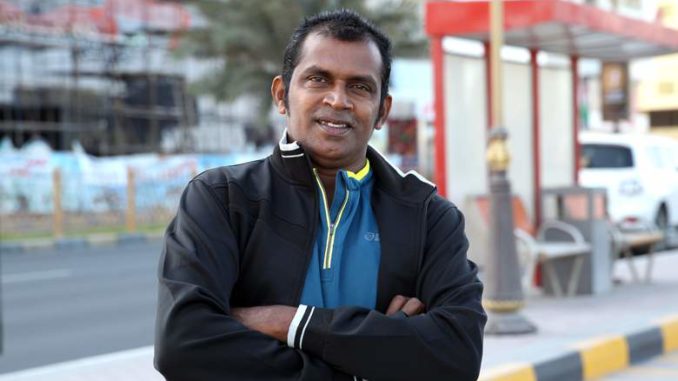
(MENAFN – Khaleej Times) Anger, anguish and offers of help poured in on Friday from Khaleej Times readers and members of the Sri Lankan community, including a former national champion, over the neglect of track star Lalith Prasanna Galappaththi who is now driving a cab in the UAE.
Unable to feed his family with his 20,000-rupee salary as a middle distance coach with the Sri Lankan Sports Ministry, Lalith came to Dubai in 2002 to work as a bellboy with a hotel apartment. He later took up the job of a taxi driver, putting in 15 hours a day.
“This is the story of lots of sportsmen in Sri Lanka. I won the national championship and I am now a store salesman,” Chathura Dilanga Dissanayake wrote on the Facebook group jobs4lankans, which has more than 23,000 members.
“Amazing story of a man who we have forgotten. I come from his town and I am ashamed to hear his plight. I would be happy to explore my contacts in the GCC to get him a deserving place,” Mohamed Zuhair, who is based in Bahrain, wrote in an email. ” I will look for him in my next trip to Dubai. Thank you for this golden opportunity,” said Zuhair.
” With tears in my eyes, I read your article about the Sri Lankan athlete. We thank Khaleej Times for the heart-warming article.
We have a broken system which is destroying the lives of talented individuals like Lalith,” wrote jobs4lankans admin Sanjeewa Marasinghe, a social worker who left Dubai last year after a 20-year stint.
“The article has created such a positive buzz, with so many individuals wanting to change the system, and at the same time help such individuals. Jobs4lankans plans to conduct a workshop on March 9 in Dubai and this is one of the topics we would be discussing,” he added.
“We need to speak with him and see his actual needs. Maybe he now wants to support fellow athletes whose future is also dark. If we can help few such athletes that would be a great achievement from your story.”
Many members of the group were seething with anger. “If our so-called leaders are not interested, at least let us try something. But do you see the irony? Our champ Lalith actually makes more money as a cabbie than what he got as a sportsman.
He needs it to educate his kids. This is an important factor we have to think of. Perhaps some kind of scholarship scheme for their children,” wrote forum member Farhaz Farouk.
“I always like to support ex-servicemen and sportsmen. They come with lots of great characteristics which “normal” education does not usually build up. Our athletes are our treasures. They have so much to give back to budding young sportsmen and women from their experience and skills. Unfortunately we are not able to benefit from that! Some sort of training institute sponsored by large corporates in Sri Lanka could be one idea. These institutes can employ our former athletes as trainers, coaches and mentors to up-and-coming stars,” Farouk suggested.
“I think he has moved beyond his shiny athletic days now. The thing is, how many more are in the pipeline – talented but no support or exposure?” Marasinghe wondered, adding: “Years back we managed to sponsor kids. Perhaps we can do it again. We will create a database of help needed and help offered. Then its a simple matter of connecting dots.”
The vice-principal of a Dubai-based Indian school offered to find Lalith the job of a physical education instructor. “With his credentials, we may be able to provide him with a decent job,” he wrote in an email.
“Most of the governments in the subcontinent are struggling with basic issues, so sports take a back seat except cricket. There is no proper policy in terms of helping/providing job security to these young people. Most of them work hard to bring laurels to their respective countries but sports administrators – most of them with no experience get all the benefits. This is 100% apathy from the respective governments,” he added.
Samir Geepee, founder and curator of Awesome Walkers for Corporate Conversations, said he plans to feature Lalith on his platform.
“As a society we aim to achieve high goals, but very often we forget to plan ‘what next’ after that goal is met. Our goals tend to be transitory and, therefore, our fame fades away too.
“Articles that remind us of forgotten heroes is a message to society to set goals and to reset them constantly, to be relentless in our pursuit towards excellence, considering the new challenges that life puts us through. Every story is one that could be ours too; and we can be better prepared on how we want ours to unfold,” he wrote.

Be the first to comment